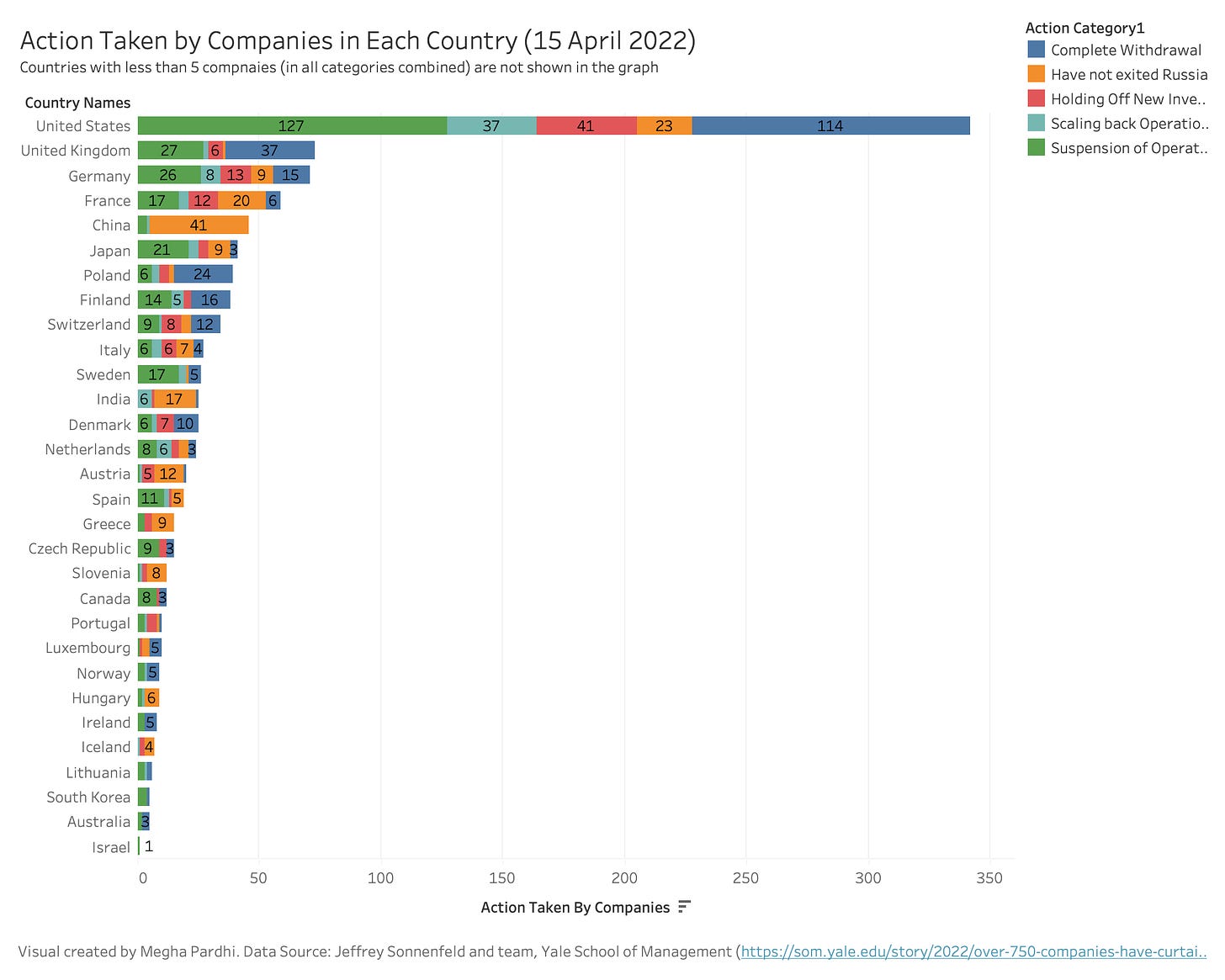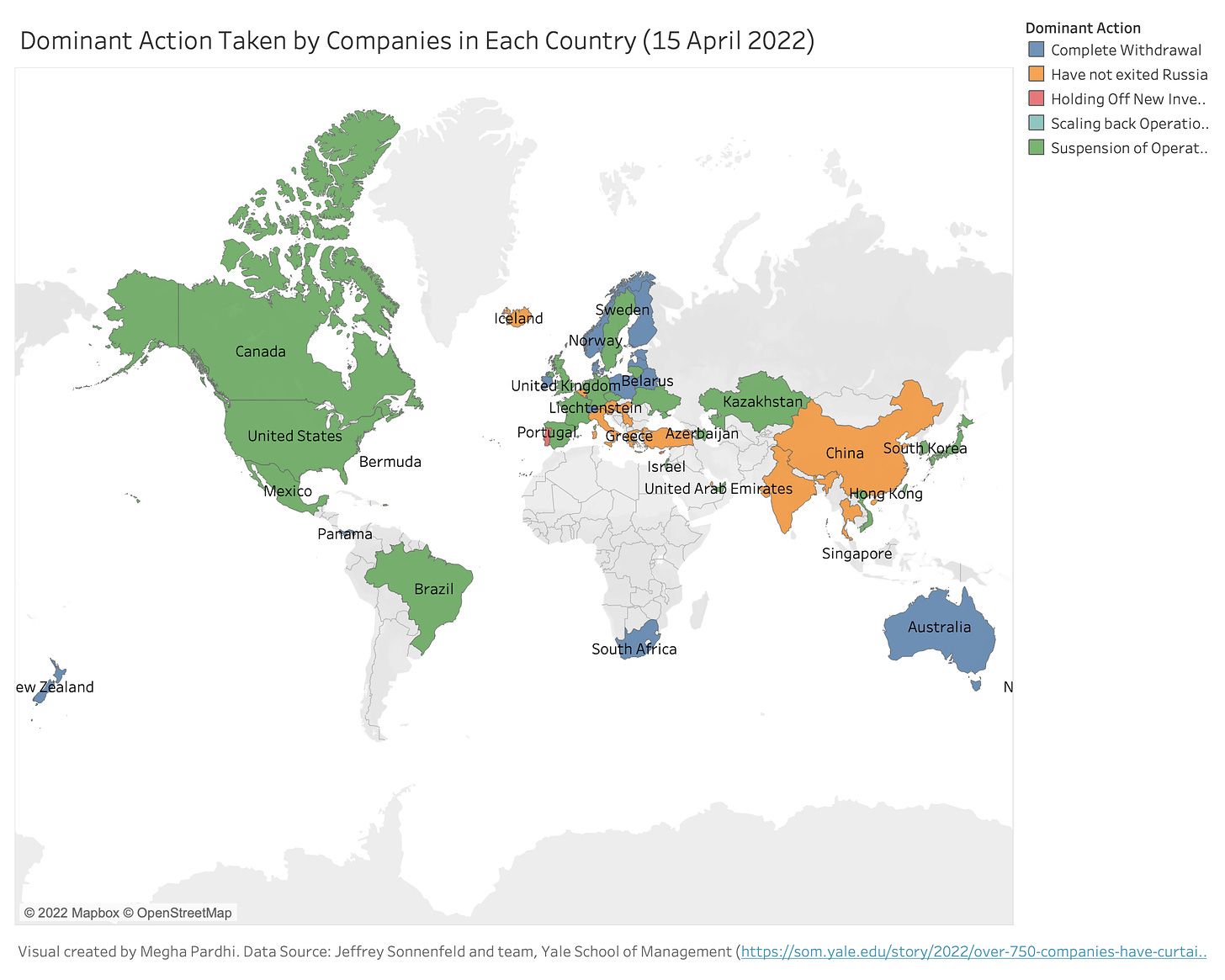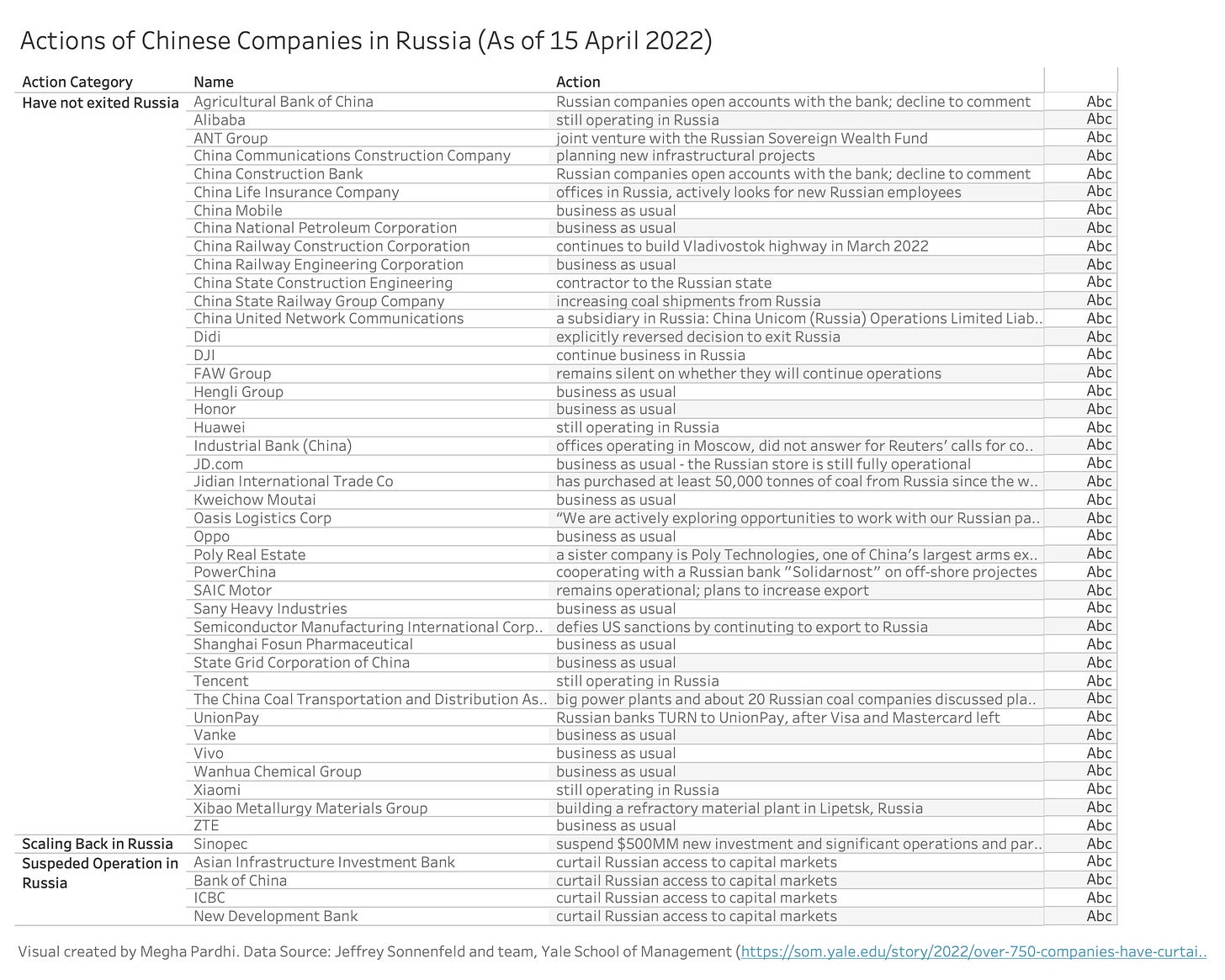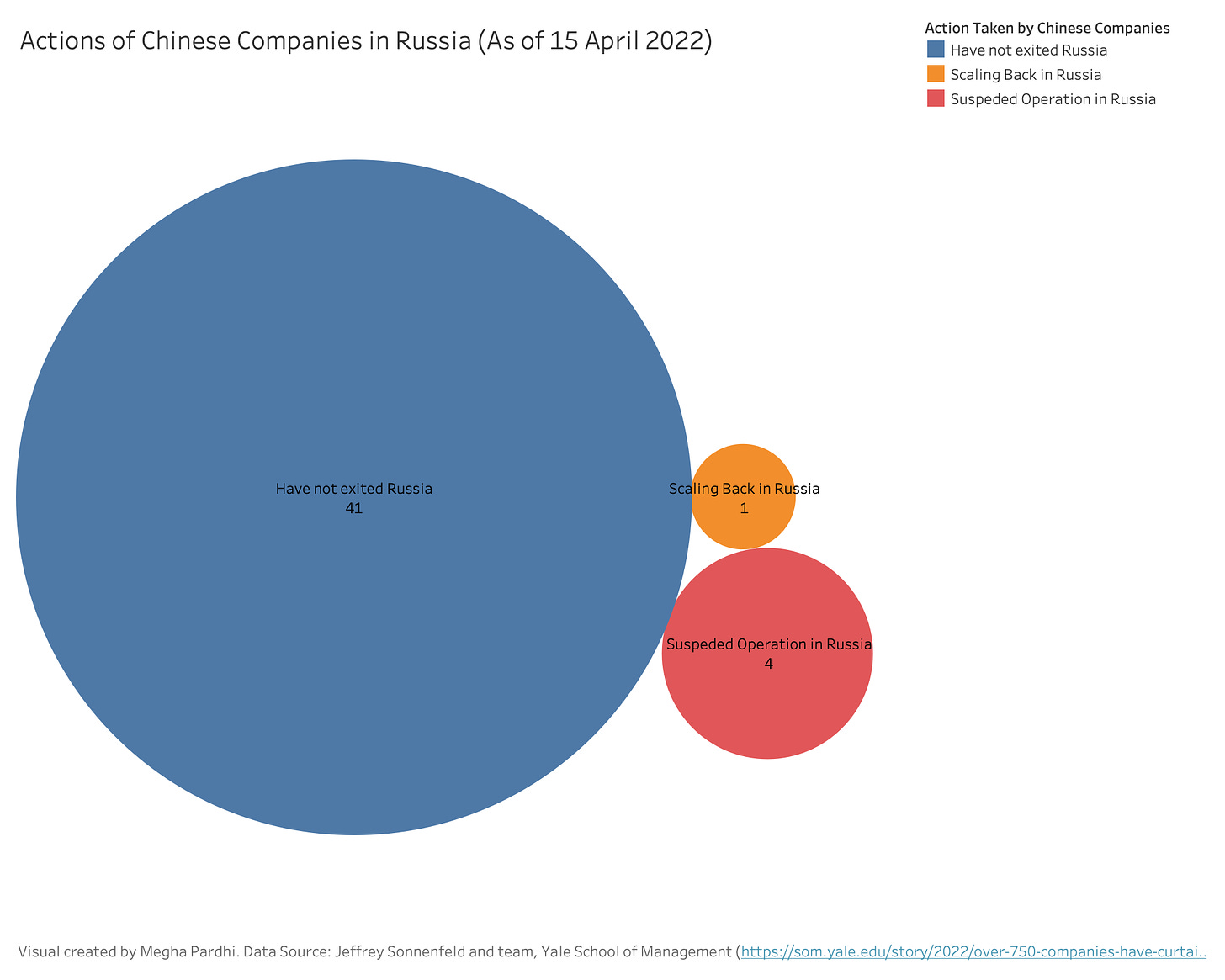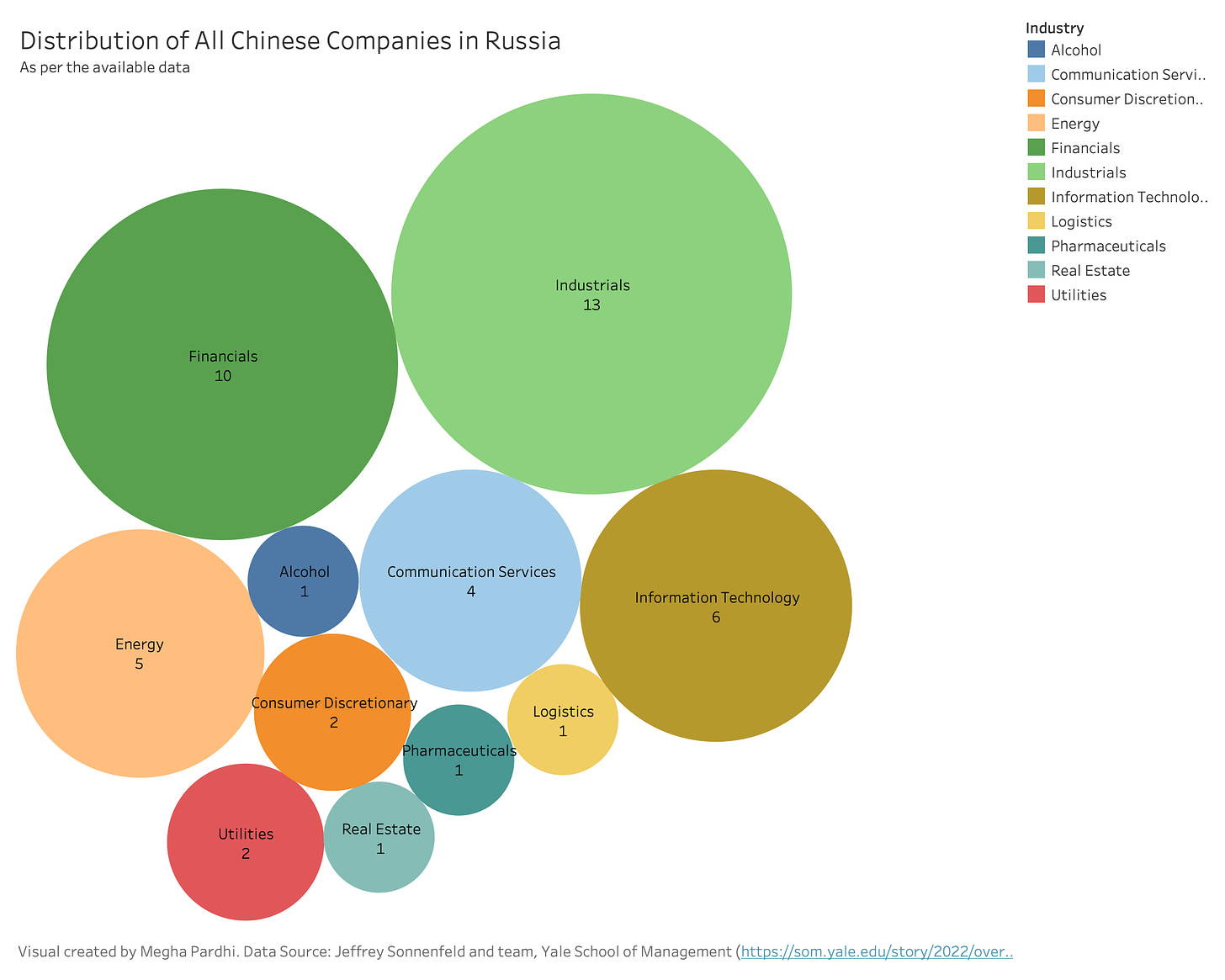Controlling Cognition to Win Wars, New Combat Modes in Future Wars, Response of Companies to Ukraine War
Issue 28, 25 April 2022
Hey,
I hope you are enjoying China Tech Dispatch. If you like what I do here, please share this newsletter with your friends and in your professional circles. If you are on Twitter, do share issues you like and tag me as @pardhimegha21 !!!
If you have feedback or suggestions, even if it is just one line, please let me know. You can reach out to me simply by replying to this e-mail.
Thanks,
Megha
-------------------
I. Military and Warfare
Controlling Cognition to Win Wars
An article by Chen Dongheng from the Institute of Military-Political Work, Academy of Military Sciences, in PLA Daily's Chinese version is about controlling cognitive abilities to win the warfare. In this article, the author has emphasized the importance of controlling cognitive capabilities. The extent of importance is evident in this sentence where he says, "The right to control cognition is an important magic weapon to win the modern war" (制认知权是制胜现代战争的重要法宝).
Controlling cognition is important to control information on the battlefield: The author rationalizes cognition as a basic resource for the operation of information-based intelligent warfare. According to Chen, an important purpose of information control and utilization is to provide basic support for thinking and cognition. Hence, only on the basis of sufficient information acquisition and possession can thinking and cognition form in-depth analysis, accurate research, judgment, and scientific decision-making. He adds that modern warfare is a game of control and cognition based on the control of information. By competing for the control of information to control the control of cognition, one can comprehensively control the battlefield and win the war.
Controlling cognition is important to control action: This argument follows the long that thoughts are precursors of action. Hence, if there is any fault in understanding (cognition), there will be an incorrect action. Controlling cognition is important to control fire: In order to move fast, react fast, and fight fast, you must first detect, know, and anticipate the enemy. This requires thinking and cognition to be superior and faster than the enemy. The author cites an example of the radar in WWII as a tool to improve cognitive capabilities.
Another important thread in this article is the language of 'right' to control cognition. This is a very assertive position. Because having the 'right to control' something denotes a sense of ownership. I wonder if the subtext here is to have ownership of the cognitive capabilities on the battlefield.
The author has suggested some measures to make this a reality.
Deeply promote the theoretical innovation of the system of cognitive rights. As a new combat concept, the control of cognitive rights is in the initial stage of exploration and has huge room for innovation and development.
Emphasis on the research and development of technologies for controlling cognitive rights.
Carry out exercises on the control of cognitive rights and tactics.
New Combat Modes in Future Wars
In this article, Liu Jianmin and Xu Jingcheng have identified new combat modes that can be used to identify future war trends. These are:
"Cage" mode (“囚笼”模式)
"Freeze" mode (“凝固”模式)
"Gray field" mode (“灰域”模式)
"Blind" mode ("致盲”模式)
"Cage" Mode
The aim is to limit the threat range of the opponent's firearms to a very small area, and to cause "lift-off" or instant kill to its strategic deterrent weapons, forming a "reverse shock and deterrence".
"Freeze" mode
This involves changing the density and nature of the air medium, it restricts the action capability of troops or weapons and equipment within a certain range, making it difficult to form an effective offensive behavior.
"Gray field" mode
This is part of biological warfare. It involves operations like assessing the physiological and behavior of an opponent to form a gene pool. This gene pool will then be used to direct attacks from aggressive mosquitos, ants, and other poisonous organisms.
"Blind" Mode
Make the opponent blind by sabotaging his detection, early warning, reconnaissance, and communication capabilities. According to the author, this "blinding" method of using the vulnerability of the information system in a very short period of time to make the opponent suddenly blind and deaf will cause great psychological impact and disorder of action to the opponent.
Additional Reading:
Combat Management System: The Core of Modern Combat System (Highly recommended)
Improving the commander's ability to identify and identify strategies
II. SinoSync
Note: So the section below is not from Chinese sources, but this is very interesting and I found it useful. Do take a look.
Response of Companies Around the World to Ukraine Russia War (As of 15 April 2022)
How are companies around the world responding to the Ukraine-Russia war?
As the Russia-Ukraine war lingers, solidarity for Ukraine is increasing among Western companies. Hundreds of companies have already either scaled down their operations or have withdrawn from Russia. There has been a lot of discussion in the media about companies leaving Russia amidst the Ukraine-Russia war. Companies have cited reasons including practical considerations, logistical reasons, moral reasons, and pressure from employees as a reason to take some actions in response to the ongoing war.
I have put together some visualizations of the data available on the actions taken by companies around the world.
About the Database
Jeffrey Sonnenfeld and his team at the Yale School of Management have put out a database, tracking the actions taken by foreign companies operating in Russia. This is a continuously evolving project. I took a snapshot of the data on the 17th of April and tried to visualize what it looks like. I have created the following visualizations myself. Some entities which did not have industry and country data in the database have been excluded from the visualizations. Most importantly, the credit for the amazing effort in creating the dataset goes to Jeffrey Sonnenfeld and his team.
Jeffrey and the team have categorized the actions of companies into five types. First, complete withdrawal. Termed as 'Grade A' companies, this category is of the companies that have totally halted Russian engagements or are completely exiting Russia. Second, 'Grade B' companies have suspended operations in Russia, but have kept the option to return open. Third, are 'Grade C' companies scaling back their operation in Russia. 'Grade D' is the fifth category which indicates companies buying time. This means they have postpones future planned investment/ development /marketing while continuing substantive business in Russia. Lastly, 'Grade F' countries are continuing business in Russia. Moreover, the detailed database entries also have a link to the announcements made by the companies. Read this article by the authors of this project to understand the nuances of this categorization.
Let's take a look at the overall data first and then we will dive into the data on Chinese companies.
Global Observations
The United States (US) represents the largest number of companies withdrawing from Russia. Of 343 companies mapped from the US, 127 have suspended operations in Russia, and 114 have completely withdrawn. The companies that have completely withdrawn include big names like Netflix, Deloitte, eBay, Etsy, Grammarly, and Uber. Companies like Amazon, Meta (parent of Facebook), Alphabet (parent of Google), Apple, Microsoft, IBM, etc have suspended operations. Partial suspension of some operations has also been included in the list. For example, Twitter has limited certain advertisement operations in Russia.
One reason could be because sheer number the US companies that have a global presence. Hence, their number also dominates in this list.
It is not necessary that the actions of companies reflect the stand of the government of the countries they belong to.
There could be a number of reasons companies are leaving/staying in Russia. Some reasons could be:
Virtue signaling
Pressure from employees to take some action
Logistical concerns after other sanctions and exclusion from SWIFT
Opportunity to stay in Russia and capture market created by withdrawing companies
The benefit of leaving outweigh the costs of staying and vice versa
Let's look at the dominant actions taken by companies in each country. As evident from the map, North American and European countries' companies have preferred withdrawing or suspending operations from Russia.
Note: The map plots actions taken by most companies in the respective country. For example, if data from Z country shows that 10 companies have withdrawn, 4 have been suspended, and 3 have not exited Russia, then the map is highlighted based on the 'withdrawn' number.
Also, while representing the actions on the map, preference has been given to withdrawal/suspension action. For example, if the highest number of withdrawals is 10 and another action is also 10, then the withdrawal action is represented on the map.
An interactive version of the map is available on the link given below. You can hover over countries to look into details of actions taken by companies in various countries.
Interactive map of actions taken by companies regarding the Ukraine war
(The maps rendered in the interactive version show international boundaries. Unfortunately, as of now, I can't change those on the live map. If anyone has any suggestions to customize boundaries, do let me know)
How Chinese Companies are Responding to Ukraine-Russia War?
Of 46 companies from China, 41 have not withdrawn. One company in Hong Kong, recorded separately in the database, has also not exited Russia. The following images explain the data available on Chinese companies.
Note: The database lists Hong Kong and Taiwan separately. Some of the information on the 'Industry' of companies was missing in the original dataset. To complete the dataset, I filled in missing 'Industry' information myself based on the public profile of the company and how similar companies are categorized in the dataset. So, some of this representation is my interpretation.
Megha Pardhi is a Research Analyst at The Takshashila Institution. She tweets at @pardhimegha21.




